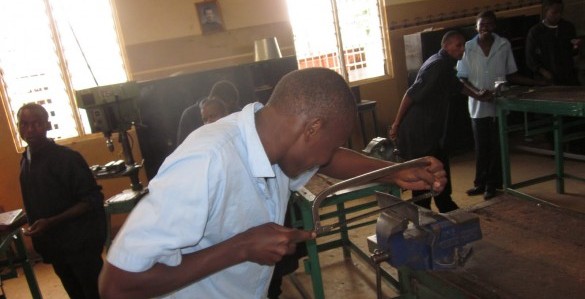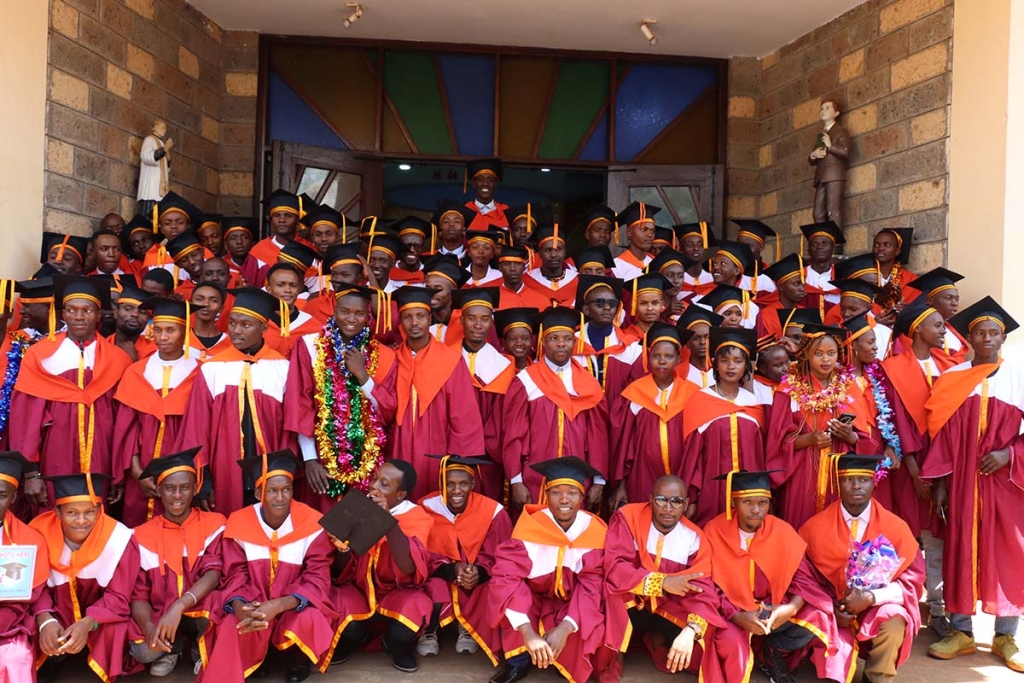KENYA: Don Bosco Job Placement and Career Center Connects Salesian Graduates to Stable Employment

(MissionNewswire) The Don Bosco Development Office in Nairobi, the capital city of Kenya, has a special job placement and career center staffed by job placement officers who work to ensure that students from Salesian educational programs connect effectively with stable employment upon graduation. The center’s role in Salesian educational programs is critical to graduates’ long-term success.
Salesian job placement officers’ primary responsibility is to create and enhance relationships between employers and Don Bosco training institutions in Kenya in order to act as a bridge between graduates and employment opportunities. Job placement officers develop relationships with employers throughout the country, in both rural and urban areas, and work to place Salesian graduates in a wide variety of positions.
“One of the key challenges facing Kenyan youth is the lack of education and the skills required to find and retain stable employment in the labor market,” says Father Mark Hyde, executive director of Salesian Missions, the U.S. development arm of the Salesians of Don Bosco. “Salesian missionaries provide youth access to education and training opportunities they would not have otherwise and part of the training is preparing students for the workforce. Salesian programs offer a seamless transition from the classroom into employment.”
In Kenya, even successful graduates often find it challenging to find employment. Many industries are located in urban areas and due to increased urban migration and a rise in the cost of living, many of the newly employed have been forced to seek housing in city slums. Employers also often insist upon past work experience, which many Salesian graduates do not have. In addition, despite their having the skills and qualifications for employment, many refugees in the Kakuma Refugee camp have been unable to work because of the permit required for employment.
Salesian job placement officers work to address all of these challenges. While their primary goal is to connect graduates with the best employment opportunities available, they also assist them in finding affordable housing, applying for and retaining work permits and creating resumes and cover letters that highlight the most applicable skills for specific work opportunities. Job placement officers also assist students in finding internships and apprenticeships to give them valuable work experience.
Once a graduate is placed in a job, the job placement officer provides frequent follow-up visits to assess the graduate’s progress and to help solve any problems that arise. This works to instill confidence in the employee and helps to further develop the relationship between the company and the Salesian network.
More than 75 percent of Salesian graduates accessing job placement and career center services connect with meaningful work within six months of graduation. Many graduates who do not immediately find work decide to continue their education and pursue an advanced degree or choose to start their own small business. To meet the growing demand, the center is expanding partnerships with international recruitment agencies that have already connected more than ten Salesian graduates with international employment.
According to UNICEF, despite the steady growth of Kenya’s economy, more than half of the country’s population lives below the poverty line on less than one US dollar a day. UNICEF also notes that Nairobi is home to 3 million residents, most of whom endure lives of extreme poverty in the city’s slums. The most vulnerable are families and children living in these urban slums and in areas of the country most affected by HIV/AIDS. Many do not have access to health care, nutrition, sanitation and education.
Few youth residing in Nairobi’s slums attend the later stages of school as compared to those living in Kenya’s more rural areas. The few schools serving this disadvantaged community are beyond the financial means of most families. UNICEF noted that while Kenya has free and compulsory education, youth in poverty still cannot afford to attend school resulting in close to 90 percent of children from poor households failing to complete their basic education.
Sources
ANS – Kenya – The DBDON: assisting young people to find jobs
UNICEF – Kenya




